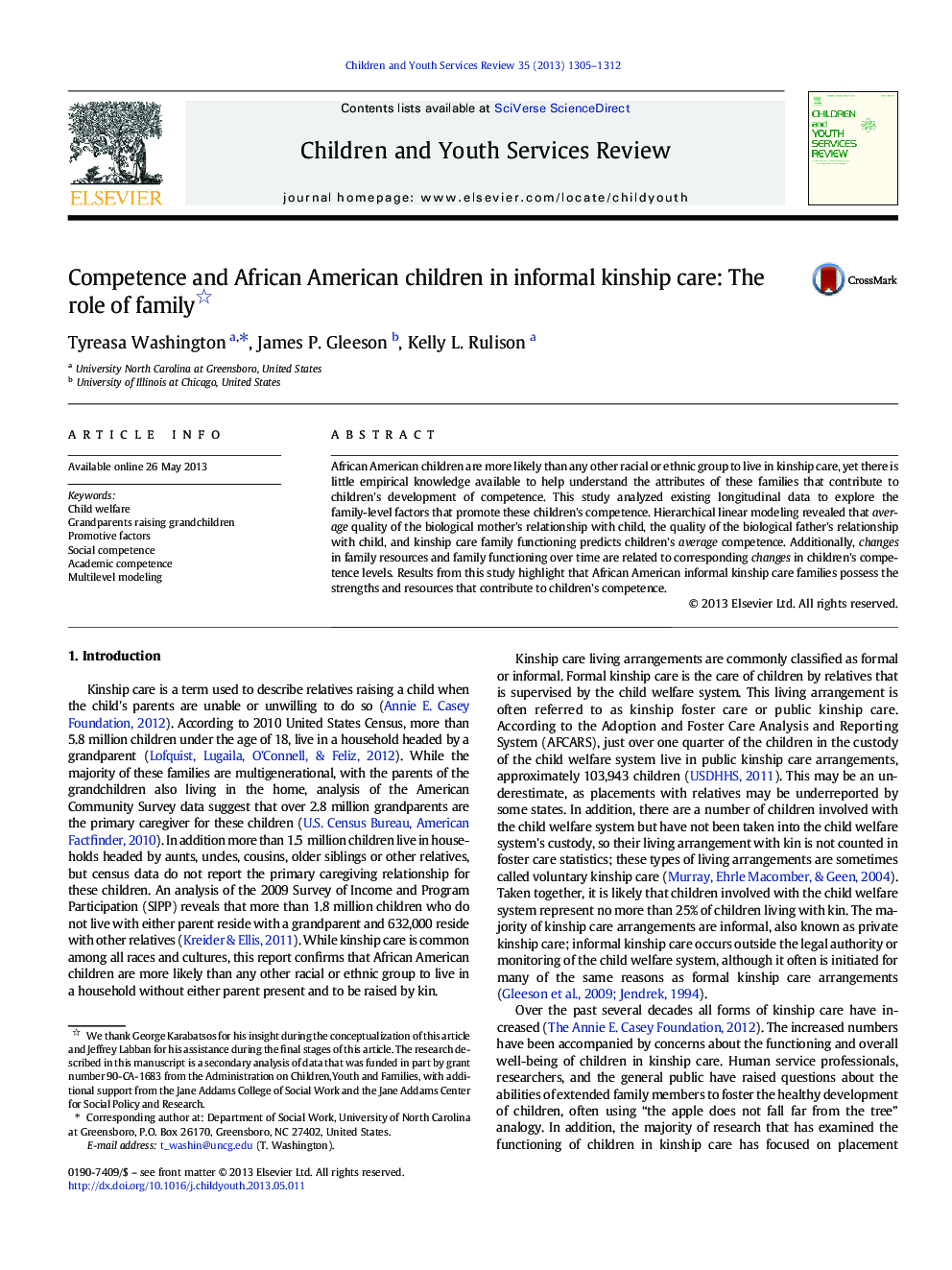| Article ID | Journal | Published Year | Pages | File Type |
|---|---|---|---|---|
| 10311582 | Children and Youth Services Review | 2013 | 8 Pages |
Abstract
African American children are more likely than any other racial or ethnic group to live in kinship care, yet there is little empirical knowledge available to help understand the attributes of these families that contribute to children's development of competence. This study analyzed existing longitudinal data to explore the family-level factors that promote these children's competence. Hierarchical linear modeling revealed that average quality of the biological mother's relationship with child, the quality of the biological father's relationship with child, and kinship care family functioning predicts children's average competence. Additionally, changes in family resources and family functioning over time are related to corresponding changes in children's competence levels. Results from this study highlight that African American informal kinship care families possess the strengths and resources that contribute to children's competence.
Related Topics
Health Sciences
Medicine and Dentistry
Perinatology, Pediatrics and Child Health
Authors
Tyreasa Washington, James P. Gleeson, Kelly L. Rulison,
